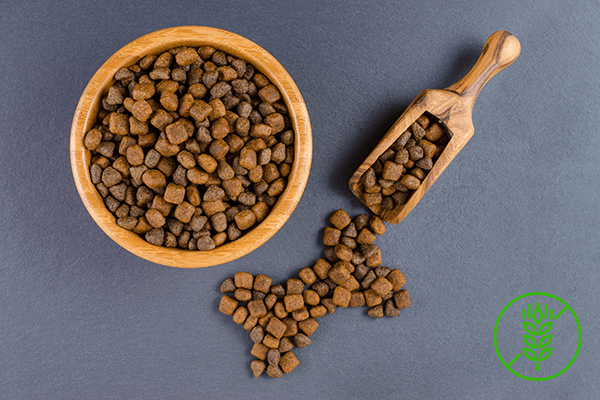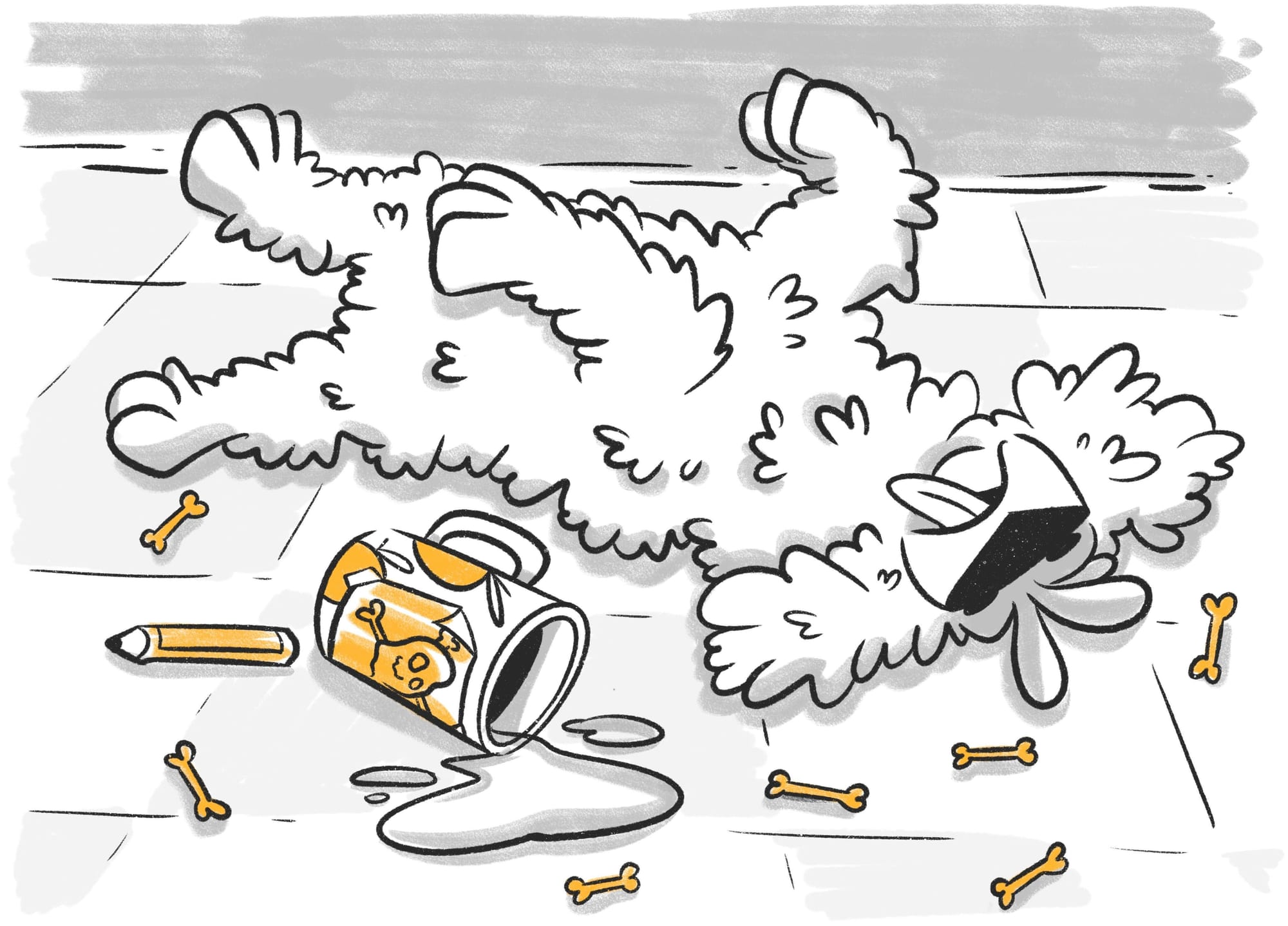
A common reason pet parents switch their pup to grain-free dog food is they believe it's the best solution for curing their dog's allergy symptoms. While dog food allergies do occur, grains are not among the most common culprits; it's much more likely a reaction to meat and dairy protein.
Feeding your pup a grain-free dog food may be the best option for them. However, switching their food shouldn't come at the cost of a complete and balanced nutrition. Healthy, whole grains are a low-fat source of lean protein that can help fortify the other protein sources in your dog's diet. Additionally, they're a nutritious source of vitamins and minerals and support the growth of beneficial bacteria in the gut.
And a diet rich in whole grains can help in managing large and small bowel diseases. They can delay gastric emptying, slowing small bowel transit time, bind toxins and irritating bile acids, and normalize gut motility. Plus, the slower transit of fiber helps pets feel full longer, which aids in controlling their appetite. That's ideal for helping our couch potatoes stay lean and healthy.
The Benefits of Switching to a Grain-Free Dog Food
Some grain-free dog food contains more protein and animal fats and fewer carbohydrates, making them easier for pups (who are sensitive to gluten) to digest.
If your dog is allergic or sensitive to grains or gluten—more specifically the type of protein found in gluten—and you eliminate them from their diet, over time you'll begin to notice improvements. Itching, scratching, chewing should decrease, as well as shedding, gas, and bloating. Often pups will show an increase in energy as well, and their coat and skin issues will clear up.
Some pups with health concerns could also benefit from a grain-free diet.
Overweight or Obese Dogs
Obesity is one of the most common health issues in dogs. Pups with weight control issues can benefit from a diet lower in grains and other carbs because their body will utilize the fat (and protein) for energy. Their system also needs to burn more energy (calories) to break down the fat and protein during digestion. Keep in mind that any protein not utilized by the body to build new muscle will also convert into fat. So, grain-free will not help every pet's weight loss goals.
Dogs Diagnosed with Diabetes and Cancer
Sometimes, a low-carbohydrate diet is recommended for dogs with these health issues. And removing some or all grains may be the right approach. Unless the pup is overweight, a low-carbohydrate, high-fat diet containing fish oil may speed recovery and extend a disease-free state of remission. It may also help manage insulin production for diabetic pups.
Some grains will have higher glucose levels, which challenge insulin levels in diabetic pups, and the gluten and lectins in some grains can cause inflammation. But, not all grains trigger inflammation.
Dogs with Chronic Inflammation in the Gut
This issue erodes the most superficial layers of the intestines. This then impairs and decreases the secretion of enzymes and other products that aid in normal digestion, absorption, and even immunity. Malassimilation of carbohydrates can cause diarrhea. If this continues, the malabsorption can lead to increased bacterial fermentation and bacterial overgrowth, which can cause gas, discomfort, diarrhea along with other issues.
Read more: Dog Not Eating: Causes and Solutions
Before making changes to your dog's diet, consult your vet; it can be challenging to their gastrointestinal system. First, you'll need to pinpoint the underlying issues, which may not be food-related at all.
If you've identified that grains are not at the root of your pup's problem, you'll want to make sure the grains they do eat are beneficial. There's a vast difference in healthy, whole grains and low-quality fillers found and many dog foods.
Whole Grain Versus Low-Quality Fillers
Even though dogs can digest grains, and they are a good source of energy for most pets, some low-quality pet food manufacturers can overdo it. Grains are cheaper than meat-based ingredients, so they use more in their recipes than is beneficial for pups. It's an issue based on poor quality and wrong quantity.
Some products on the market are packed full of highly processed grain, which can strip food of their powerful nutraceutical properties and beneficial phytonutrients. Whole grains, as opposed to cheap, over-processed fillers, can contribute valuable nutrients to canine diets, including vitamins, minerals, essential fatty acids, and fiber that are naturally present in high-quality grains like brown rice, oats, and teff.
Identifying your pup's dietary issues and finding the best dog food to support their specific nutritional needs, is one of the most important steps you can take in ensuring optimal health. If you're uncertain, talk to your vet or speak with a pet nutritionist. Most personalized dog food companies have certified pet nutritionists formulating recipes unique to each dog. They can help guide you as well as deliver a healthy dog food right to your door.
About the author
Dr. Laura Duclos leads the Research and Development team at Puppo. She has over 16 years of experience in developing nutritional pet food that supports animal health and wellbeing. Her clinical research has been featured in prominent publications and scientific journals. She has been an invited speaker at numerous international veterinary conferences on pet nutrition and innovation.
Was this article helpful?
Help us make our articles even better









